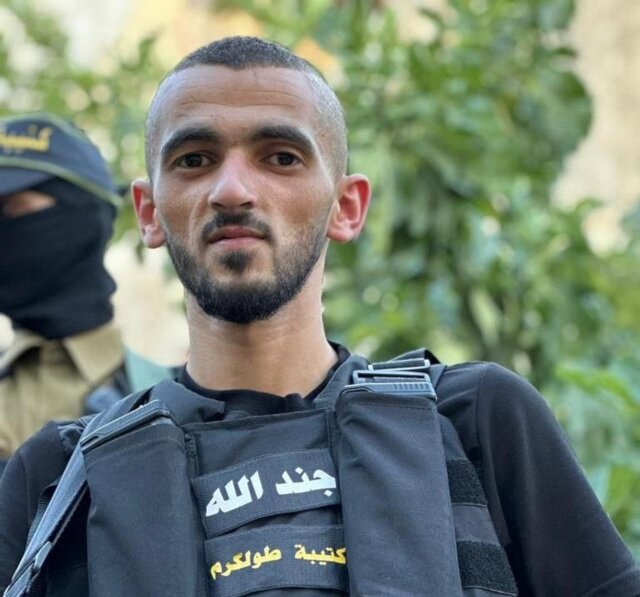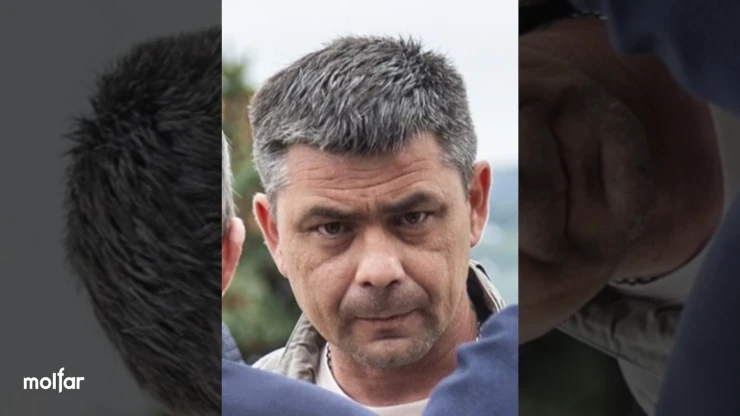April 2011 Briefs
April 2011 Briefs
TAJIKISTAN CONFIRMS DEATH OF NOTORIOUS MILITANT LEADER MULLO ABDULLO
On April 15, Tajikistan state television reported that its most wanted militant leader and warlord, Mullo Abdullo, was killed in an operation carried out by security forces in the troubled Rasht district east of Dushanbe (Channel One [Dushanbe], April 17). Tokhir Normatov, chief of staff of the Tajik Interior Ministry, said that Abdullo was killed along with 14 of his fighters (AP, April 16). In the aftermath of Abdullo’s death a hitherto unknown group calling itself Mojohidini Tokijikiston (Mujahideen of Tajikistan) posted an online statement that its members hailed from all of Tajikistan’s major regions as opposed to the Rasht and Badakhshan areas of historic Islamic insurgency. The Mojohidini Tokijikiston called on their fellow Tajiks to overthrow the autocratic regime of President Emomali Rahmon (REF/RL, April 28).
In the group’s statement: “We appeal to you, dear brothers and sisters of Tajikistan! Are you not prepared to leave this world, what do you fear and what are you waiting for? Rise up, the peoples of Dushanbe, Khatlon and Badakhshan, Sugda and Rasht! Is there not a single decent man among you who has not bowed his head before the non-entities that is headed by alcoholic [President] Emomali [Rahmon]? Look, where is now the president of Egypt Hosni Mubarak? Where is now the president of Tunisia? What is now happening to the president of Libya? Allah is punishing them in this world and humiliating them in front of the whole world.” [1]
Mullo Abdullo, whose real name is believed to be Abdullo Rahimov, was a major rebel commander of the United Tajik Opposition (UTO) during the country’s 1992-1997 civil war which ended in a negotiated peace that Abdullo never accepted (Asia Plus, April 18). Rather than accept a peace with the government of Emomali Rahmon and demobilize his fighters accordingly, Abdullo headed south to Afghanistan before returning to reignite troubles in Tajikistan in 2009. The Tajik government did its best to co-opt leading members of the Islamic Renaissance Party (IRP), the Islamist component of the UTO, but Abdullo preferred a life on the run. In the days before Mullo Abdullo’s death, Dushanbe claimed it was interested in carrying out meaningful dialogue with its internal opponents in the UTO in order to bring them in from the political cold.
A former UTO commander and civil war-era deputy of Abdullo’s, Fathullo Khayriddinov, said the he believed Abdullo was irreconcilable: “Even after serving time in prison, someone who had evil intentions is not likely to change. Mullo Abdullo did not accept the peace agreement; he thought he would be imprisoned, and he thinks it now too” (Central Asia Online, April 12). It is clear that Dushanbe felt killing Abdullo was the proper method of resolving his renewed presence in the rugged Rasht valley.
A possible reason for Abdullo’s return to the Tajik battlefield may have been the immense pressure from drone missile attacks in Pakistan, where he is believed to have sought shelter after years in Afghanistan. Speculating about the possible motive for Abdullo’s reemergence, Tajik analyst Parviz Mullojonov stated: “It is more than likely that under these circumstances [drone strikes in Pakistan], a number of groups will be forced to return to Central Asia and become more active in the region – even they are not ready for large-scale operations” (Institute for War and Peace Reporting, July 23, 2009).
Abdullo, age 60 or 61, was accused of being behind a large-scale ambush in the Rasht district on September 19, 2010, that killed 28 Tajik military personnel (Interfax, April 19). This brazen attack on the Ministry of Defense convoy is what ultimately triggered the recent manhunt that eliminated Abdullo. The hunt for Abdullo lasted some seven months and cost Tajikistan the lives of 60 of its troops (RFE/RL, April 23). The end of Abdullo is highly unlikely to be the end of militancy in Tajikistan, the causes of which, in the militants’ own words, are largely economic rather than ideological. Tajikistan’s militants’ grievances include the lack of sustainable heat for homes in the country’s bitter winters and President Rahmon’s never-ending Rogun dam hydroelectric vanity project. IRP spokesman Khikmatullo Saifullozoda said: “Certain foreign circles have an interest in seeing Tajikistan remain an unstable state. I cannot foresee which Mujahideen will figure, but the ‘game’ continues. You can always find such Mujahideen here, especially given the socio-political problems we’ve got” (Central Asia Online, April 28).
LEADERSHIP FISSURES IN SYRIAN MILITARY THREATEN STABILITY OF AL-ASSAD REGIME
As violence has intensified in southern Syria’s besieged city of Dera’a, information is creeping out of a deadly schism within the country’s Ba’athist military though impossible to independently verify due to the barring of international media from Syria. Anonymous residents of the city reported seeing clashes between the 4th Division, headed by Lieutenant Colonel Maher al-Assad, President Bashar al-Assad’s younger brother, and the 5th division (Al Jazeera English, April 29). The regime portrays the violence in Dera’a as a jihadi uprising that is forcing beleaguered Damascus to fight for its survival. The Syrian Arab News Agency describes captured protestors ‘confessing’ under duress on state television, as members of an unspecified “extremist terrorist group” that was receiving external motivation and support from activists in Jordan, Kuwait, and Saudi Arabia (SANA, April 29). Maher was described in a report by the Council on Foreign Relations as possibly “unstable.” [2] His name allegedly originally figured into The Mehlis Report, an investigation into the February 14, 2005 assassination in Beirut of former Lebanese Prime Minister Rafik al-Hariri, but was later scrubbed from the final text for reasons that remain unclear. [3]
A Facebook group called Syrian Revolution 2011 reports that five officers from Maher al-Assad’s 4th Division defected to the dissident side after they were ordered to fire upon unarmed protestors (Ya Libnan, April 25). The uprising, which began on March 18, has taken hundreds of lives, including those in the security forces. Maher al-Assad, a member of the ruling Alawite minority elite, is most likely motivated by regime preservation as protests continue to engulf the country’s retrograde Arab socialist nationalist Ba’ath Party, which at the time of this writing can only survive by implementing severe physical and political repression. Maher’s troops stormed into Dera’a to crush dissent somewhat reminiscent of his father Hafez al-Assad’s infamous 1982 scorched earth assault on the city of Hama to snuff out the Muslim Brotherhood (Ya Libnan, April 29).
As an integral member of his brother’s inner core, Maher will be subject to immediate U.S. sanctions in a report that describes him as “the second most powerful man in Syria” commanding an “ultra-loyal” elite 4th Division (Al Arabiya, April 27). A Lebanese daily suggested that the individual sanctions against Maher, which would be implemented by the U.S. Department of the Treasury, were all but a done deal (An Nahar, April 27). As Maher al-Assad’s loyalist troops continue to gun down civilian agitators calling for his brother’s overthrow in Dera’a, 200 lower-level Ba’athists resigned from the party as their country’s now violent uprising showed no signs of abating (Reuters, April 29). As Militant Leadership Monitor went to press, U.S. President Barack Obama signed an Executive Order imposing individual sanctions on Maher al-Assad, his cousin Atif Najib, and Ali Mamluk, chief of Syria’s General Intelligence Directorate coupled by a White House statement that read: “The United States strongly condemns the Syrian government’s continued use of violence and intimidation against the Syrian people” (UPI, April 29).
Notes:
1. To view the Mojohidini Tokijikiston’s original statement (in Tajik), see: https://irshod.net/index.php?newsid=290.
2. Esther Pan, “Syria’s Leaders” Council on Foreign Relations, March 10, 2006, https://www.cfr.org/syria/syrias-leaders/p9085#p2.
3. Mona Yacoubian and Scott Lasensky, Dealing with Damascus: Seeking a Greater Return on U.S.-Syria Relations, (New York: Council on Foreign Relations, 2008), p.15.


